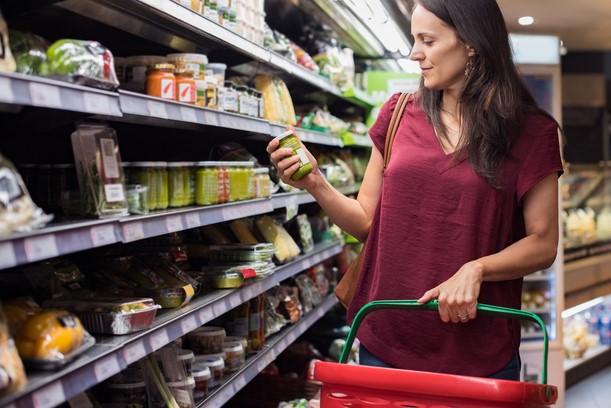03 November 2022
How can we really trust that our food meets an ethical standard? And will ethical food purchase behavior change in the face of tough global economic times?
The ethical food movement has accelerated since the mid 1950’s with increasing consumer awareness of environmental issues, animal welfare, social justice/poverty alleviation and concerns over climate change.
We take a look at the issues.
As food miles increased and globalisation facilitated export trade, so did the movement to verify the provenance of food, as supply chains lengthened.
Somewhere along the line, the consumer became increasingly aware and better informed of their food choices, spurred on by the Internet-age and with greater access to information, as well as mobility to travel to countries with differing standards of ‘welfare’.
Hence, the ‘ethical’ food movement began with a greater knowledge of the environment, food waste, the treatment of livestock, poverty – and more recently, concerns over climate change.
Consumers continue to evolve to what the Food Ethics Council in the UK terms a ‘citizen’ mindset. Ethical consumerism has increased as incomes have risen in affluent communities, with the UK, Western Europe, the USA and Canada continuing to dominate the ethical food market.
Parallel to this, the Corporate Social Responsibility (CSR) movement dating back to the 50’s has meant that businesses are increasingly responding to consumers concerns about ethical issues.
All creating a perfect environment for consumers to meet producers on the ethical path – with a social license to operate granted by consumers, regulators, and government.

Certifying Ethics
Consumers are seeking clear and unambiguous ethical food labelling.
The Food Ethics Council in the UK points to the growing call for transparency in the supply chain that certification schemes can provide, saying that “comprehensive and well-regulated schemes that allow customers to understand exactly where their food comes from, the journey it’s taken, and the impact it has, are crucial in building trust and transparency in the food system.”
Ethical certification systems fall into three main categories:
• Self-declared claims made by suppliers;
• Suppliers that claim to meet third party established standards without audit; and
• Suppliers that meet third party established standards with routine audit.
It is the third category that provides the highest level of assurance for ethical consumers.
Tim Marshall, Chair of NASAA Organic, one of Australia’s largest certifiers of organic food production, says that, “We are witnessing increased community consciousness and action about climate change, and personal health. The treatment of animals, social equity and fairness are also important in consumer food choices.”
“These themes drive more people to seek out the products of sustainable agri-food systems, which should be unquestionably good for organic,” he says.
“Unfortunately, we also see too-easy access to information, multiple competing voices, and sometimes misinformation.”
Tim highlights the confusion and potential for ‘green-washing’, with consumers being able to “choose between almost 200 sustainability-related certification schemes.”
This is an issue also recognised by the UK Food Ethics Council, that suggests a need to refine the number of certification schemes to the most rigorous and well regulated.
Can we afford to be ethical in tough economic times?
How is choice impacted when the cost of living starts to rise? And, what trade-offs exist?
There are mixed reports of the current and potential impact of rising inflation on consumer’s ‘ethical’ food choices.
According to a Commonwealth report in 2012 on the ethical food opportunity landscape (and other sources), ethical food product sales actually increased during the Global Financial Crisis of 2007-2009.

Some report that organic loving consumers – especially Gen Zs and millennials - will likely keep buying sustainable food despite higher prices – and point to surveys conducted in the US and abroad that suggest some consumers continue to prioritise sustainable goods.
Other studies indicate that price and taste come first in purchasing trade-offs. The Consumer Dilemma finds that the cost-of-living crisis is forcing people to “choose between luxuries and survival” and an article in the Guardian UK, urges shoppers to continue to buy Fairtrade products, “amidst fears of a race to the bottom, as struggling Britons look for ways to save money.”
Price has always been the biggest obstacle to widespread purchase of sustainable foods, even pre current inflationary times, and an article by Food Navigatorexplains well, this sustainability vs affordability dilemma. Consumer attitudes have certainly changed, but whether this promotes behaviour is unclear.
The 2012 Commonwealth report identified that the demographic characteristics of ethical consumers is not straightforward, citing that “while some studies suggest ethical consumers are likely to be well-educated, female and affluent, an increasing number of other studies report that few, or no demographic generalisations can be made.”
Further reports indicate a greater price elasticity in low-income countries, and that various ethical attributes are prioritised differently by individual consumers and countries.
There also appears to be two emergent consumers from the global pandemic, savers and spenders, suggesting that higher income households put money aside not spent on travel and entertainment/going out, and lower income households spent more with government support subsidies – the former having money to spend now. Deloitte reports (not surprisingly) that low-income households typically spend a higher share of their income on food items and will feel the squeeze.
With all of these considerations in mind, would we dare to suggest that we might see a plateauing of demand in the short term, that doesn’t impact the long-term upward trend?
For a significant consumer audience, ethics will continue to be foremost.
Further Information
The Food Ethics Council is an advocacy group and registered charity in the UK, whose charter is to provide independent advice on the ethics of food and farming.
Adapted with permission from the National Association for Sustainable Agriculture Australia [NASAA].
The National Association for Sustainable Agriculture Australia (NASAA) plays a critically important role in supporting and promoting the adoption of organic agricultural practices that lead to safer and more sustainable food production systems.
NASAA’s subsidiary business, NASAA Certified Organic (NCO), is one of the most well-recognised certifiers of organic food production in Australia to meet all domestic and international export market requirements.
